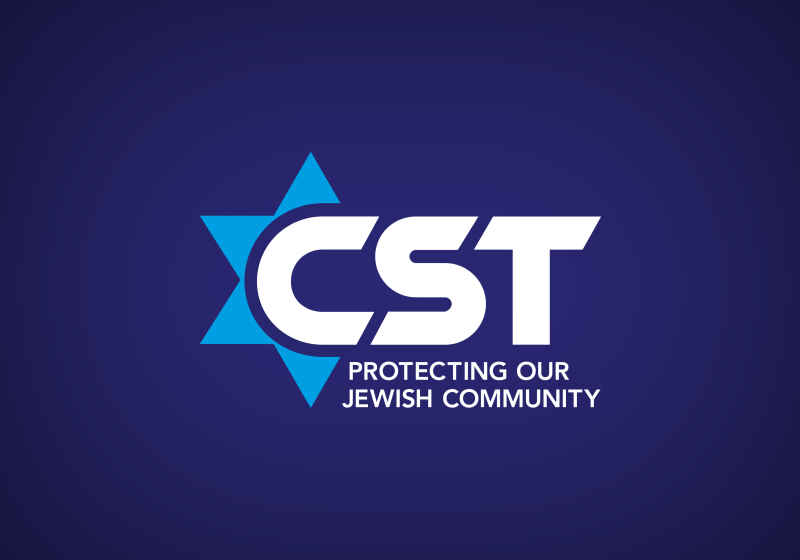CST Blog
Robert Fisk: words, power, genocide and Holocaust
22 June 2010
The Independent newspaper (21 June 2010) featured a double page spread entitled Fighting talk by Robert Fisk in which he railed about the use of semantics by journalists, but revealed some very curious semantics of his own.
Fighting talk is a lengthy article about the use and the abuse of words and phrases; and the power that this contains. Fisk goes after his usual targets: Israel, America, Tony Blair, and of course all those other journalists and media who lack Fisks own perception, courage and integrity in telling it as it really is.
The article is illustrated by a photograph of TV crews shooting news interviews, whilst helpers hold an Israeli flag behind the reporters heads. It is an apt photograph as Israel is never far from Fisks anger. He begins and ends by sneering at Israels use of the word terror; and includes America and Israel within the parasitic-osmotic relationship between supposedly honourable reporters and the nexus of power.
(The words parasitic and osmotic do not mean the same thing. Parasitic means one body living and feeding off another. Osmotic means a fluid passing through membranes. One is a relationship of dependency, the other is not.) Still, this is not the main thrust of Fisks article. Rather, this is
In the Western context, power and the media is about the words and the use of words. It is about semantics. It is about the employment of phrases and their origins. And it is about the misuse of history, and about the ignorance of history. More and more today, we journalists have become prisoners of the language of power.
Further impassioned statements about words and power pepper the articles length, including these
This isnt just about clichés this is preposterous journalism. There is no battle between media and power; through language, we, the media, have become them.
Yet the use of the language of power of its beacon words and its beacon phrases goes on among us still.
Yet the most dangerous side of our new semantic war, our use of the words of power though it is not a war, since we have largely surrendered - is that it isolates us from our viewers and readers. They are not stupid. They understand words in many cases I fear better than we do. History, too. They know that we are drawing our vocabulary from the language of generals and presidents.
Fisk mainly illustrates these (and other points) with scathing criticisms of Israel and/or America. That is not my concern. Instead, it is the power and the semantics of one letter and one word that perplex me.
The word is Holocaust, and the letter is the capital H. There are three thousand two hundred and twenty nine words in the article, but the word Holocaust appears only once. It is Fisk who in this article referred to the language of power of its beacon words and its beacon phrases. It is fair to assume that Holocaust (especially with a capital H) is one particularly powerful beacon, even if Fisk does not actually say so in the article.
Fisk uses the word genocide six times in the article (always in the context of Turkeys 1915 genocide of Armenians) so his solitary use of the word Holocaust is deliberate and calculated. This is where it appears
But it was interesting that the Israelis who for their own political reasons had hitherto shamefully gone along with the Turkish denial now suddenly wanted to inform the world of the 1915 Armenian genocide. This provoked an understandable frisson among many of our colleagues. Journalists who have regularly ducked all mention of the 20th centurys first Holocaust unless they could also refer to the way in which the Turks hotly dispute the genocide label (ergo the Toronto Globe and Mail) - could suddenly refer to it. Israels new-found historical interest made the subject legitimate, though almost all reports managed to avoid any explanation of what actually happened in 1915.
As regular readers of Fisk will know, he has very strongly opposed the Arab tendency to trivialise or even deny the Holocaust; and was the first Westerner to put the Jewish Holocaust on a Lebanese television channel. He has also long called for recognition of the Armenian genocide (by Israel and America in particular) and this is not the first time he has referred to it as the 20th centurys first Holocaust, nor the first time that he has done so with a capital H.
Nevertheless, when he is writing as lengthy and impassioned an article as this for the Independent, on the power of words, it is important to scrutinise what he actually writes about the Holocaust; and to ask what meaning his readers are likely to take from all of this.
In itself, describing the 1915 Armenian genocide as the 20th centurys first Holocaust, strongly infers that the Nazi Holocaust of European Jewry was not unique.
Semantically, if the Nazi Holocaust was not unique, then why is Fisk denoting it with a capital H? If the word Holocaust is simply another word for genocide - and therefore with however many other dreadful 20th century episodes - then why bother with the capital letter: unless, that is, your point is to actually equate the Turkish genocide of Armenians with the Nazi Holocaust of Jews.
Terrible though the events in Turkey were, they did not equate to the Holocaust of European Jewry. You do not need to risk diminishing the unique awfulness of the Holocaust in order to confirm the Armenian genocide.
In the context of many articles, such relativising of the status of the Holocaust could perhaps be excused as unwitting, imprecise, ill-informed or lazy journalism. (Likely a combination of all four.) Not so in this article. Not in an article that is devoted to the power of words, the power of history and the power of those who abuse all of that; and not in an article that keeps returning to Israel as being an exemplar of all that is wrong with such a world.
Next, re-read this excerpt from Fisks Holocaust paragraph again
Journalists who have regularly ducked all mention of the 20th centurys first Holocaust unless they could also refer to the way in which the Turks hotly dispute the genocide label (ergo the Toronto Globe and Mail) - could suddenly refer to it. Israels new-found historical interest made the subject legitimate
Is Fisk actually meaning to imply that journalists (in his example, Canadian ones) take their cue from Israel as to whether or not they can refer to the Armenian genocide as a genocide? For an article about semantics, words and phrases, this is a most unfortunately written paragraph: because that ridiculous assertion is certainly what it suggests at face value.
Finally, there is Fisks admirable commitment to ensure that neither the Armenian nor Jewish genocides are airbrushed from history by those for whom it would be convenient to do so. I ask, therefore, why he himself should have neglected the German colonial genocide of the Herero and Namaqua peoples (1904-1907) in present-day Namibia. This is, according to most scholars, including the United Nations Whitaker Report (1985) on genocide, the 20th Centurys first genocide not Holocaust, nor even holocaust, but genocide.
Robert Fisk certainly knows the power of words, but there is a simple cliché that he would do well to stick by
People who live in glass houses should not throw stones.


